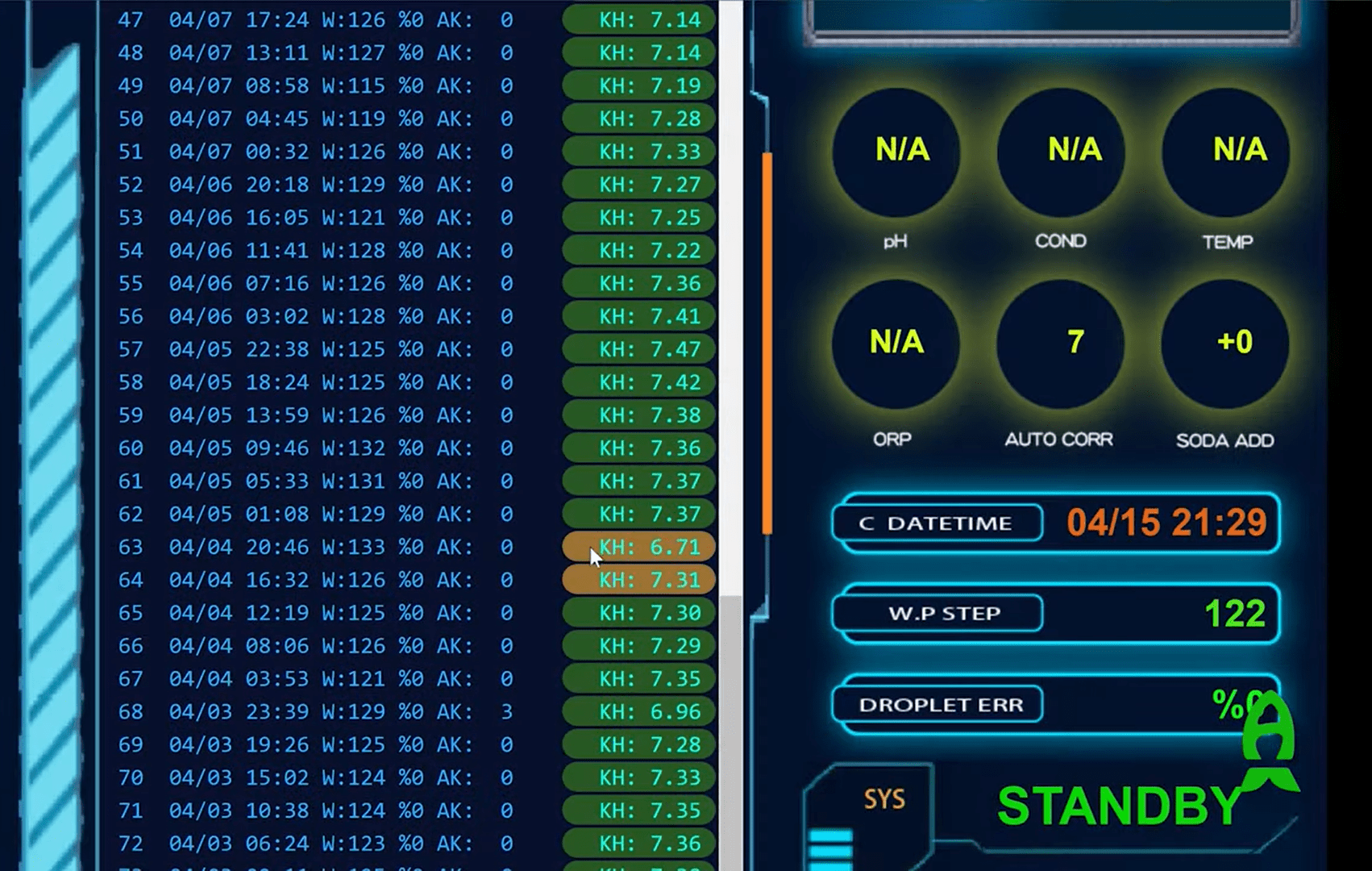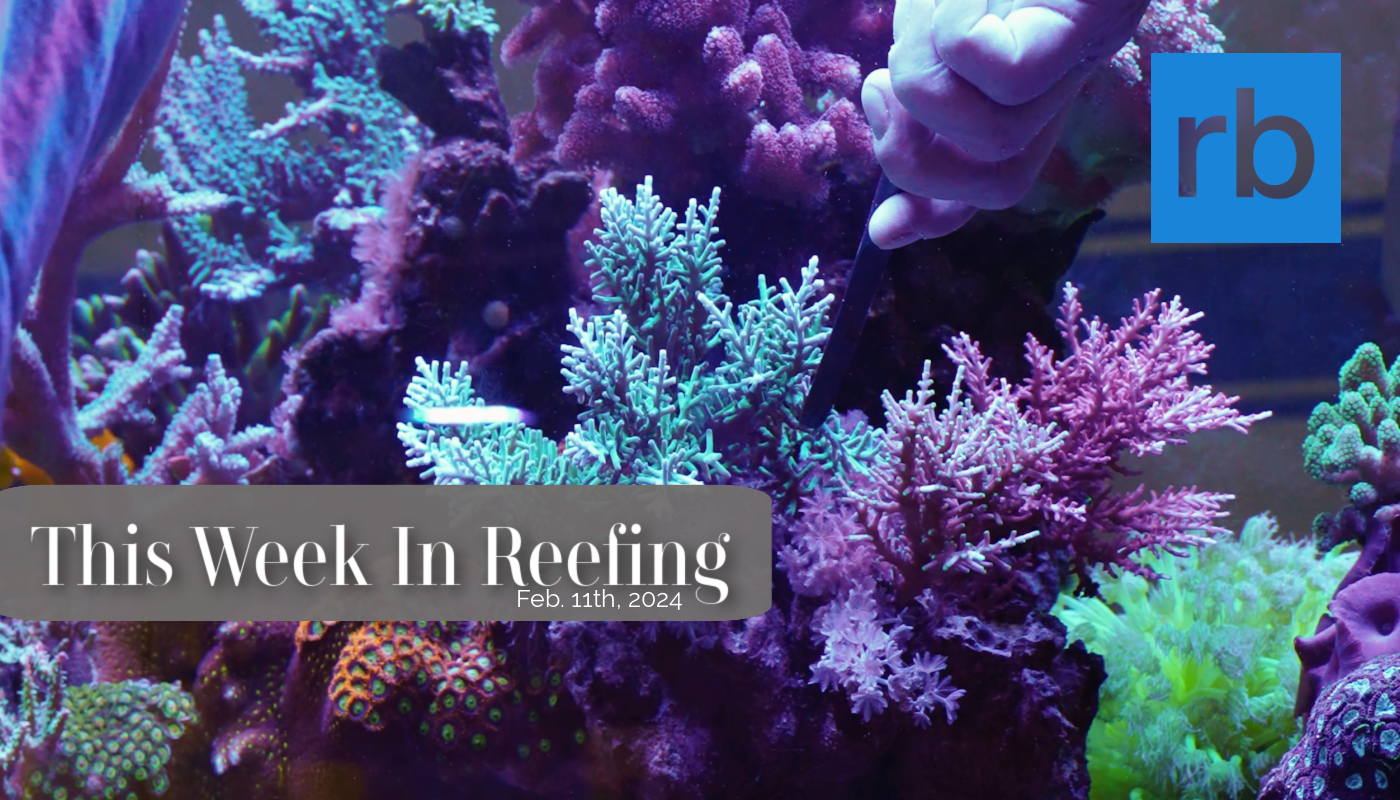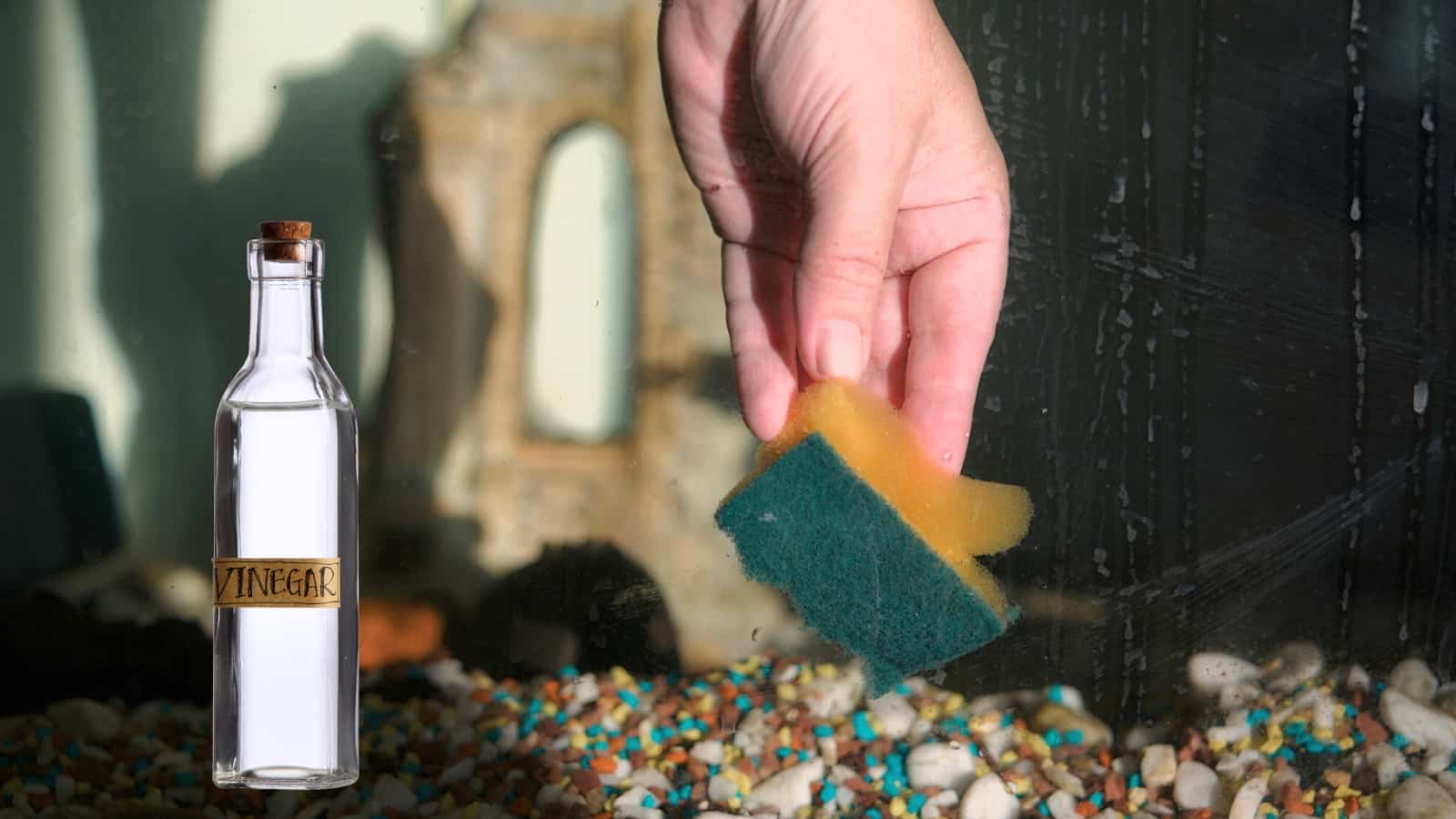After keeping reef tanks for almost forty years, and having viewed literally thousands of successful tanks, including a few recently sans fish, it got me to thinking are fish necessary in a reef tank. Now before you think I have lost my mind, I want to point out a few things. First, I love fish. In fact, I love them almost as much as I love corals, and as anyone who has seen my videos or pictures of my tank can attest, my tanks are packed full of fish. Some would even say I have overstocked my tanks with fish.
Second, I once did a tank without any fish. In the mid-1990’s I set up a beautiful 240-gallon tank full of soft corals, but without a single fish in it. I was really proud of this tank as the corals thrived, it was colorful and there was lots of movement as the corals moved in the flow. Only after I showed it to other hobbyists as well as friends did I learn the truth. Every single person said the same thing;” it looks nice, but where are the fish”. Disheartened that my experiment had failed to show the beauty of corals alone, I then added fish to the tank, it did well, but it was not the same, at least to me.
After a recent conversation with Julian Sprung, I got to thinking about a conversation that we had more than thirty years ago. I asked him this simple question: “Why do we love corals more than fish”? And in usual Julian fashion he had the perfect reply: “Because fish die”. That was true then and it is true now. We can keep, grow, and frag corals for generations, and now even get them to spawn, but fish usually only last one generation in our tanks. As I will discuss below, there are also other reasons why we may not need fish in our reef tanks. But as with every aspect of this hobby, there are also clearly reasons why we do need them as well.
The first reason why having fish may not be a good idea is the same reason that has been around since the start of the hobby and that is they can bring in diseases. And despite all of the advances we have made in the hobby there are still no treatments that I know of for treating fish diseases in a reef tank without harming the corals. And while quarantining all new fish, as well as any with symptoms is still the best route, I realize that very few hobbyists actually do it. As a result, every new fish added has the capacity to spread disease and wipe out the entire fish population.

Sadly, I know this first-hand and I have seen in occur in far too many tanks to think this happens infrequently or to only badly managed tanks. I am seeing more diseases coming in now than ever, so in my mind keeping or getting new fish will only become more problematic in the coming years. One caveat to this is that not all fish seem as prone to introduce diseases as do other fish. Wrasses, blennies, hawkfish, and dottybacks, to name a few all seem less prone to get or introduce diseases. So, if introducing disease is a concern and is keeping you from adding fish these might be worth considering.
Another reason why a fishless reef tank might be advantageous has also been a concern since the start of the hobby: waste. Since the beginning of the hobby trying to manage nitrate, phosphate, has been an issue that everyone at some point struggles with. Fish need to be fed, and introducing food produces waste either through the fish digesting the food or by food going uneaten and decaying in the tank. Either way nitrate and phosphate are introduced and if not managed can lead to algae problems.

Prior to the advent of efficient protein skimmers, improved filtration, specific chemical media, and an understanding of the need for adequate water changes, this was more of a problem. However, truth be told one of the most common questions that I still get asked is: “How do I get rid of this problem algae”? Unfortunately, it is not as simple as just bringing your nutrient levels to zero, as this causes different problems with the corals as they need nitrate and phosphate to survive and grow. It is not even as simple as bringing the nitrate level to X and phosphate to Y and everything will be good.
I say this as I have seen tanks with both of these levels off the scale and not a blade of algae anywhere and conversely tanks with very low nutrient levels with algae overgrowing the entire tank. When there are no or only a few fish in a tank, managing these nutrient levels is much simpler and easier. From this experience, I have come to understand that not only managing these nutrient levels is important in controlling algae, but also utilizing animals like snails and urchins as well as some herbivorous fish like tangs and rabbitfish is really the only way to keep problems like algae under control.

So, in this instance it may not be a question of whether fish should be in a tank, but more of which fish should be kept and how many. I should point out that there is some evidence that fish waste is useful for promoting coral growth and that corals may really only need light and fish waste to meet the majority of their nutritional needs. So this may be another reason why keeping fish in a reef tank is beneficial.
This question of which fish should be kept or if fish should be kept is also necessary in the context of which fish and how much they will bother the corals. This may seem simple in that as long as a fish is not a coral polyp eater like a Larvatus butterfly or a hard coral consumer like most parrotfish, most other fish can be kept in a reef tank. Sadly, over the years I have learned the hard way that just about any fish can become a pest and eat, pick at, or damage corals under specific conditions. What is even more frustrating is that a fish can be a good actor for a number of years and not bother anything and then one day for some inexplicable reason will turn and become a coral destroyer.

I have had angelfish do great for years and then one day I found that soft corals had become a favorite snack. Similarly, a Moorish Idol I had kept for two years with no issues suddenly found Euphyllia was something to its liking and I have had a similar thing happen with a couple of tangs. Finally, I had a pair of Multibar angels be totally benign to the corals in the tank until I went on vacation and they were not fed as much as they had been. I came home to a tank where all of the sps corals had been consumed. All of this then led to the only thing worse than adding a pesky fish: having to remove it. In each instance removing the fish led to more disruptions in the tank which negatively impacted some of the corals and in each instance required days to accomplish. For this reason too, a reef tank may be better off without fish.
Lastly, and this may be specific to me, fish may not be good in a reef tank as they can hurt you. I have been bitten by Niger Triggerfish and Maroon Clownfish, stung by a rabbitfish, and sliced by a surgeonfish. While all of these events seem trivial now, in each instance some medical intervention was required. Granted not every fish can inflict damage but understanding that these things can occur needs to be understood. And avoiding personal bodily harm is another, albeit small reason why fish may not be necessary in a reef tank.

Considering all of these possible reasons why not to have fish in a reef tank, why do we all still feel it is necessary to keep fish in our tanks? First, in the early years of the hobby when most corals, both soft and sps corals were brown, fish and their vivid coloration, provided a necessary contrast. And unlike their freshwater counterparts who mainly swim from side to side in a tank reef fish usually have interesting behaviors. Since the reef is such a competitive space, fish have developed to survive and thrive in virtually every niche available. As a result, they have acquired behaviors that allow them to do this, and which we find interesting.
Everything from watching an clownfish in an anemone to watching a pair of hawkfish hang out together on a favorite perch, is all quite interesting to most of us. Lastly, and I’m not trying to anthropomorphize fish, but fish seem closer to us than do corals. And over time we come to recognize their individual personalities and for lack of a better term develop a bond with some of them. They recognize us when we are around the tank, know when we are going to feed them and in some instances develop a “bond” with us.

Despite the potential drawbacks of having them, almost all of us will choose a tank filled with fish versus a piscine-free tank and that is probably how a real reef tank should be. In my own case I will continue to have tanks overstocked with fish and manage them accordingly, but some days not having any fish in my tanks does seem like a good idea. One last thing I have experienced is that when a coral dies I feel bad but I know it will pass. But when a fish dies, especially one I have had for a long period of time, there really is a bit of sadness. So there probably is more of an attachment to our fish and we need to consider this as well.



